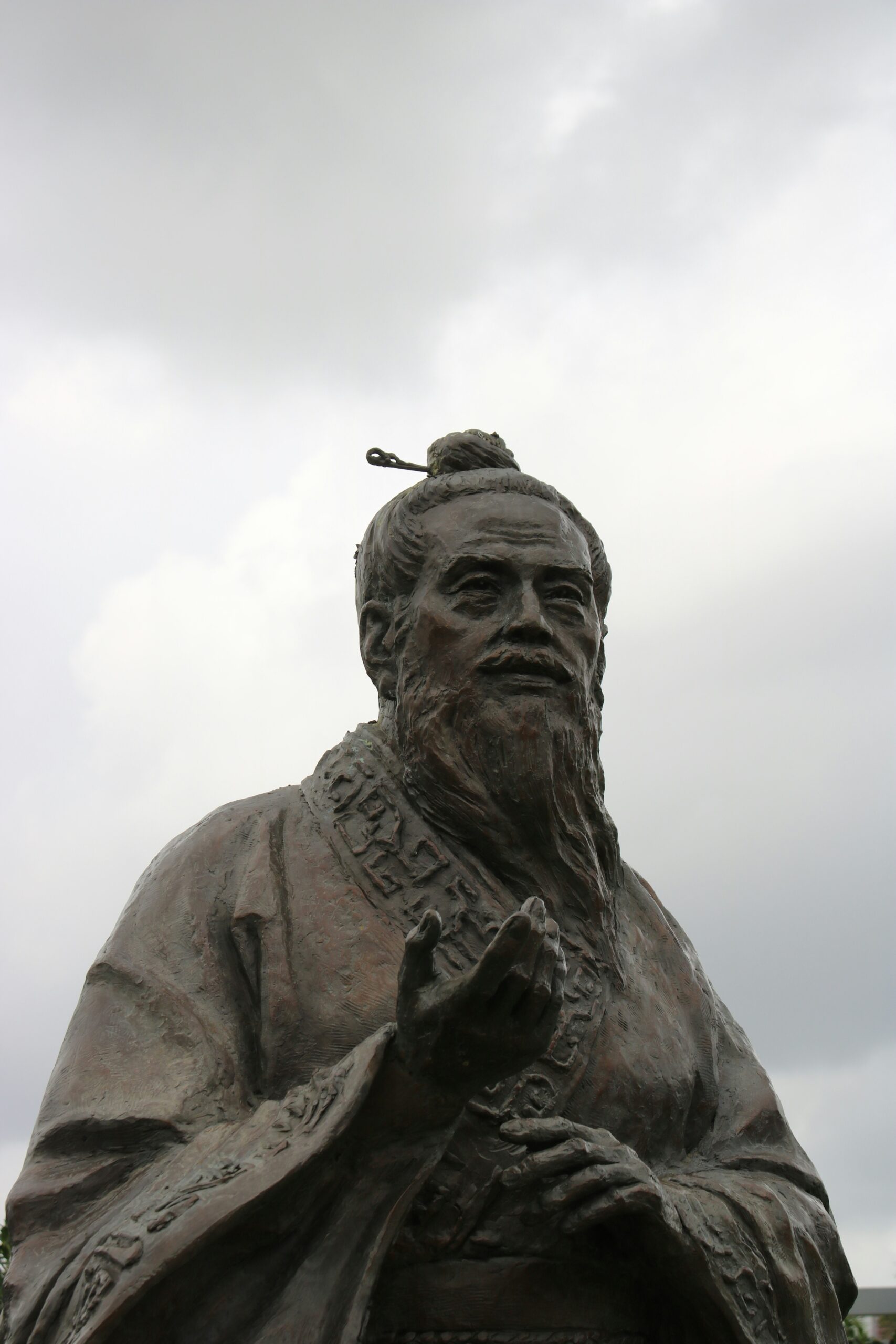Confucianism, founded by Confucius in the 6th century BCE in ancient China, is more a system of ethical and philosophical teachings than a religion in the traditional sense. It has deeply influenced the cultural and social structures of China and other East Asian countries. The core principles of Confucianism emphasize morality, proper social relationships, justice, and sincerity. Here are some of the key principles:
1. Ren (仁, Benevolence or Humaneness)
Ren is the central virtue of Confucianism, often translated as “benevolence,” “humaneness,” or “goodness.” It involves a deep compassion and empathy for others, expressed through altruistic acts. A person practicing Ren seeks to develop virtuous characteristics and extends kindness and fairness to others.
2. Li (礼, Proper Ritual)
Li originally referred to religious rites but evolved to encompass a broader concept of ritual that includes social etiquette, ceremonies, and proper behavior. For Confucius, observing Li is essential to cultivate personal virtue and maintain harmony in social interactions. Li guides everything from familial respect to state ceremonies, emphasizing the importance of acting appropriately in each social context.
3. Yi (义, Righteousness)
Yi concerns the ethical disposition to do good. It involves a moral disposition to do the right thing, even when it may be against one’s self-interest. Yi is closely associated with justice and morality, guiding individuals to act according to what is just and proper within the context of their roles in society.
4. Zhi (智, Wisdom)
Zhi is the ability to see what is right and fair. Wisdom in Confucianism is deeply tied to practical and moral knowledge, not merely intellectual understanding. Wise individuals make decisions that enhance the well-being of others and contribute to the moral betterment of society.
5. Xin (信, Trustworthiness)
Xin means being faithful and trustworthy. Confucius emphasized the importance of honesty and fidelity in words and actions. A trustworthy person keeps promises and remains faithful to their word, thus maintaining the social fabric.
6. Xiao (孝, Filial Piety)
Xiao, or filial piety, is a virtue of respect for one’s parents and ancestors. In Confucian thought, this respect forms the basis of individual character and social harmony. Filial piety extends beyond respect to include care, obedience, and support.
7. Junzi (君子, The Superior Man)
The ideal of the Junzi, or “superior man,” is central to Confucian ethics. The Junzi is a person who embodies the qualities of moral character and leadership, including benevolence, righteousness, propriety, wisdom, and faithfulness. The concept is not limited by social class but is achievable by anyone who dedicates themselves to self-improvement and ethical living.
8. The Importance of Education
Education is fundamental in Confucianism for moral development. Learning and studying are lifelong processes that enable individuals to transform themselves and influence others positively. Education is not just academic but also moral and philosophical, aimed at cultivating virtue.
9. The Five Relationships
Confucian ethics is structured around the concept of five key relationships: ruler and subject, father and son, husband and wife, older sibling and younger sibling, and friend and friend. Each relationship involves mutual obligations that should be conducted with respect and righteousness to maintain social order and harmony.
10. Social Harmony
The ultimate goal of these principles is to achieve social harmony, the product of every individual acting rightly within their social roles. Harmony results when people live and work together in ways that avoid conflict and promote the greater good.
Confucianism teaches that moral values are the foundation of society and the state, and when everyone upholds these values, a harmonious and just society is possible. These principles have been integral to the governance, education, and social behavior across East Asia for centuries.


